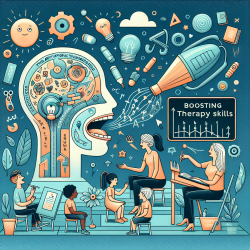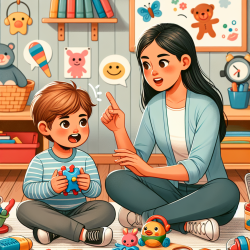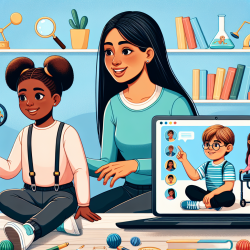As a practitioner in the field of speech therapy, you're always on the lookout for ways to improve your techniques and help your young clients communicate more effectively. Today, we're diving into some fascinating research that might just give you a fresh perspective on addressing articulation issues in children. The study, "Misunderstanding of Children's Speech: Its Relationship to Articulation Change" by Ralph L. Shelton and Cynthia Spier, explores how misunderstanding children's speech can impact their articulation.
Key Takeaways from the Research
The research focuses on four and five-year-old children who inconsistently misarticulated sounds like /s/ and the "r" family (/r/, /Éš/, and /É/). When these children were asked "What?" after misarticulating a target sound, their responses were analyzed to see if there was any improvement in articulation.
Important Findings
- The questioning technique ("What?") had little influence on the children's articulation.
- Children often repeated the word with the target sound or used the target sound in another word.
- Responses included phonetic changes, syntactic changes, and changes in intonation, but not necessarily improved articulation.
Implications for Practitioners
So, what does this mean for you as a practitioner? Here are some actionable insights:
1. Understand the Limits of Misunderstanding Techniques
The study suggests that simply asking "What?" after a misarticulation may not be effective in improving articulation. It's essential to recognize that not all techniques work for every child, and some methods may need to be tailored to individual needs.
2. Explore Alternative Techniques
Consider incorporating other methods that focus on phonological awareness and cognitive problem-solving. Techniques like using homonyms and phonemic contrasts can motivate children to articulate correctly to convey meaning more clearly.
3. Focus on Individualized Therapy
Each child is unique, and their response to therapy will vary. It's crucial to observe and adapt your methods based on each child's specific needs and abilities. Personalized feedback and targeted exercises can make a significant difference.
Encouraging Further Research
The findings from this study open the door to further research and exploration. As practitioners, staying informed about the latest research and being willing to experiment with new techniques can enhance your practice and benefit your clients.
To read the original research paper, please follow this link: Misunderstanding of Children's Speech: Its Relationship to Articulation Change.










